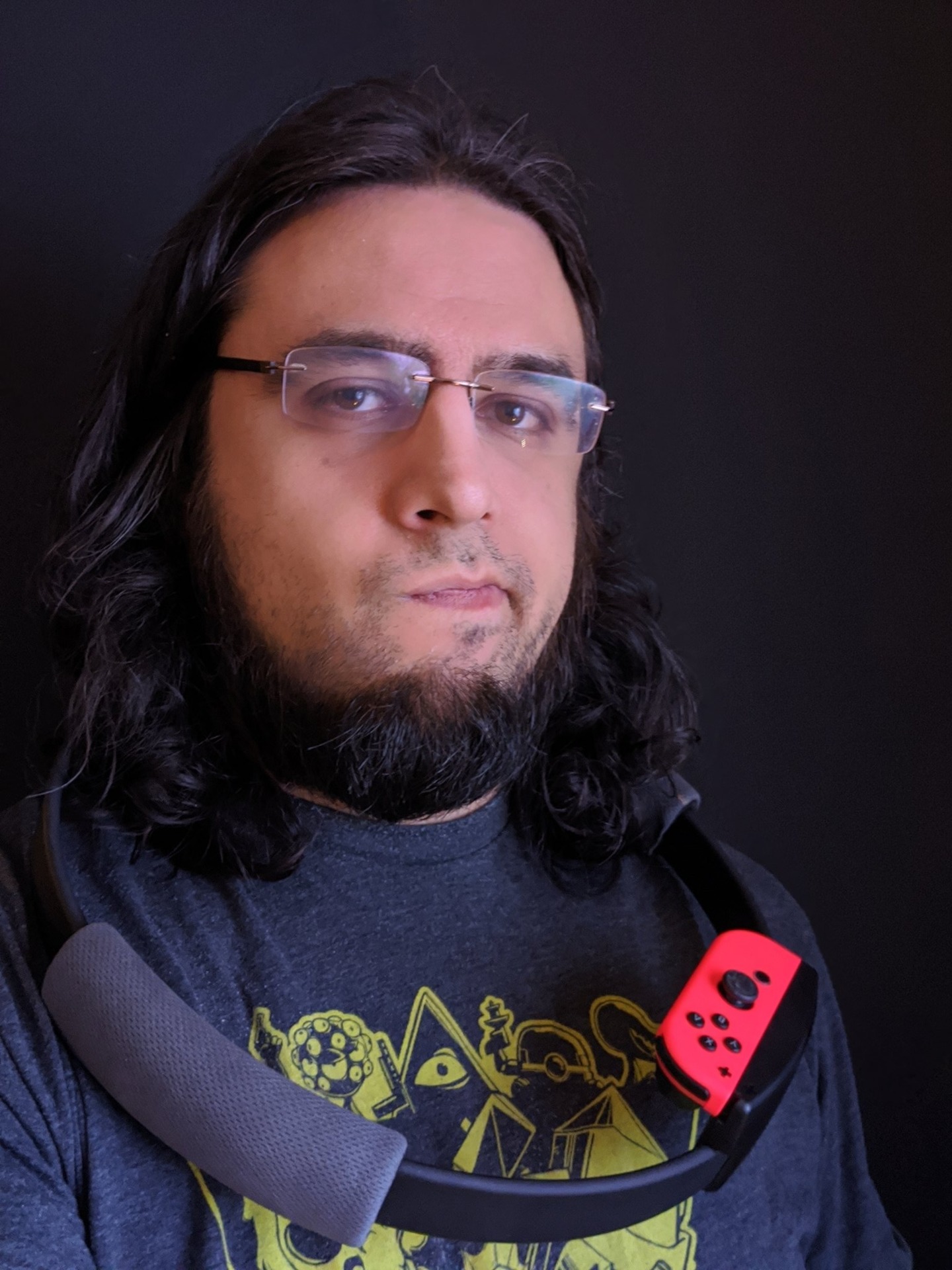
Rami Ismail is one half of the team best known as Vlambeer, the developer behind games like Ridiculous Fishing, Luftrausers, and Nuclear Throne. Getting him to stay in one location long enough to have a conversation may prove difficult, so try talking to him on Twitter instead.
2019 was a strange year for me. It feels a bit like a rollercoaster that really wanted to emphasize just how many G-forces it could throw at you, and that made for some ridiculously wild swings throughout. Luckily, at any given time, there were some incredible games to distract me from whatever absurd loop-the-loop or corkscrews were happening in life.
That being said, I’ve done plenty of things I’m extraordinary proud of: I hosted my first ever game developer conference, the entirely online, entirely free, and entirely translated into eight languages gamedev.world; Vlambeer released our first few Switch titles with Nuclear Throne and Super Crate Box (and ULTRABUGS remains incoming); I released a tiny game by a different developer every day of the year under a project called Meditations, and I’ve slowly managed to rebuild a bit of my life after a really rough 2018.
I am sorry to have missed you all at E3 this year. I’ll try and make sure I’ll be back for next one, I sure missed hanging out, however short it might be--it’s always a highlight of the year for me. Let’s get to the games.
Best Game: Control
Let me admit to incredible bias here before starting: I am an enormous fan of the team at Remedy Entertainment. They’ve managed to consistently make games that by all commercial projections should be terrible ideas--a film noir shooter, a psychological thriller about a writer writing the psychological thriller he’s in, a half-TV-series-half-action-adventure about time travel, and now a AA brutalist action shooter about superstition.
And every time, Remedy has managed to create something kind of uneven, but unmistakably special out of their unlikely ideas. With Control, they’ve managed to outdo the label ‘special’--Control is a defining game. It is a stubborn game, executed with confidence, and while it is far from flawless, it feels like a game that will float around in the mind of anyone who touches it.
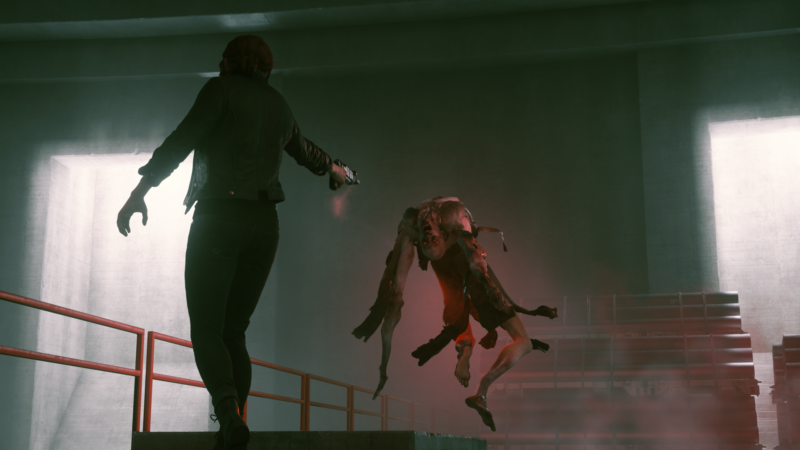
Protagonist Jesse Faden finds herself in The Oldest House, a building that’s hidden in plain sight, visible only to those who know of it. Through an unlikely series of events, she finds herself appointed the Director of the Bureau of Control by the Board, which is a giant inverted pyramid that speaks only in ambigu-- you know what, I could try to explain it but it wouldn’t make sense in writing. I could write about the extra-dimensional Hiss that forced the Bureau into lockdown. I could write about light switches, or about the mysterious Motel, or about a labyrinth that changes around you, but it all wouldn’t make sense. It makes absolute sense in the game, although often times ‘making sense’ means ‘accepting that we don’t truly understand it.' The game is confident enough to leave questions unanswered.
In developer circles, the game started an incredible discussion about whether Control itself was from an alternate universe, a universe in which shooters in the '90s hadn’t evolved the way they did. Where developers hadn’t created a design language in which straight lines look boring, and thus learned infinite tricks to make a straight line look less like it. Artists will put anything into a space to break up lines, to create a sense of a space being lived in. Control throws everything out of the proverbial window, and embraces the lines, embraces the blocky reality of games, and focuses on the core fantasy of being a supernatural hero in a supernatural world, a world in which you’re both the most powerful thing, and entirely at the whims of another, a world in which you’re both in charge and stumbling around.
Don’t get me wrong: Control is far from flawless. It suffers from an uneven difficulty curve, from an overwrought crafting system, from at times abysmal boss fights, from occasionally awful checkpointing--but for some reason, it doesn’t matter. Control had the very best moments in games of 2019. Whether it is a confrontation with an undefined number of books, the curious confusion of the geometry of the Oldest House, or an infinitely reconfiguring maze, Control’s moments are exceptional. The Ashtray Maze in particular is a sequence that simply is beyond explanation, and it is a showcase of Remedy’s true muscle--making strongly narrative, beautiful, and surprising action sequences set to a perfect pairing of music. I might’ve dropped my controller and applauded at the end of that sequence, and as a developer it definitely made me sad that game developers just can’t see those responses from players.
Back in the days I would argue that Game of the Year needed to be a flawless game, but looking back at the games I liked best in past years, it’s never the flawless games that stand out. It’s always the games that confidently tried something strange. Control is confident. Control is strange. Control is the game I’ll remember from 2019.
Favorite Touch(es): Control’s best touch is without a doubt the overwhelmingly effective physics and effects work. From impact particles to the Hiss’s movement and death effects, Jesse’s movement trails and the physical destruction caused in the straight lines of The Oldest House, Control uses its physics and effects to really drive home the preposterous destruction your powers afflict on the world and your enemies.
Least Favorite: Listen, if you’re going to make me fight a giant floating orb that vomits projectiles at me in an arena that’s 95% death drops, don’t respawn me half a minute away.

Alternatively: Luigi’s Mansion 3 oozes charm, literally, and does some incredible work with revisiting previously encountered areas in a new context. Between the incredible animation work, the perfect line between being charmingly spooky and entirely readable, and the atmospheric sound design, Luigi’s Mansion 3 sticks around just a tiny bit too long--but it’s exceptionally hard to complain about that.
Best AAA: Days Gone
I know this one is going to be a bit controversial, so let’s dive in with something that’ll make it even more confusing: I hated almost every minute of playing Days Gone. I genuinely cannot remember a game in which I so severely loathed picking up the controller to play another hour. Sure, the systems all made sense--it is the same trick as Red Dead Redemption II, after all--everything is “slow” and “weighty." In Red Dead Redemption II that bothered me--there seemed to be no good reason for the game to be slow and weighty. It never affected the outcome of a situation, because bullets go faster than me, and everything else is slower than me.
It turns out that with a large swarm of zombies amassing around you, the difference between “hop on your bike” and “pick your bike from the ground and hop on it” is the difference between driving away with an adrenaline rush and a lengthy and grueling escape from an ever-escalating threat, and a shameful trek back towards the bike.
I hated it because Days Gone is tedious. It starts you off way too low on the ‘how well-equipped am I to deal with zombies’ curve, a problem a lot of these open-world zombie games have. I remember one of my favorite games of all time, Dying Light, having that same issue. You start off so weak that the entire sandbox is effectively a roguelike. Then, a dozen hours in, you hit the sweet spot where interesting choices are possible and the zombie hordes make for interesting play, until finally, 50 hours in, you’re so overpowered that the only threat you face are weird mechanic-breaking and unreasonable bullet-sponges.
Days Gone also suffers from serious narrative speed bumps, where after a pretty high-octane start the game slows down to a painful grind, and you’re stuck with asshole biker man Deacon, whose only redeeming value is that when you get too annoyed by him, you can run him into a shallow pool of water, which instantly kills our gruff zombie apocalypse survivor. All the other characters are more likable than Deek, including his ambiguously fridged wife Sarah, and best-friend-plus-cyborg-man Boozer. But I have to admit: when the story picks up, it picks up well. I have to give a special shoutout to one antagonist in the game who was introduced as the ‘will obviously betray you’ trope, but slowly grew into the ‘bad kid turned around’ trope. When something about a situation he got me involved in was really, really obviously sketchy, I found myself genuinely hoping the kid wouldn’t betray us. I found Deek hoping that, too. Maybe Deek wasn’t so bad, after all.
Days Gone thus meanders between abysmal and exceptional, the mechanics clearly broken and tedious but interesting and frantic, the story uninteresting but ever-developing in interesting ways, the characters flat and boring but somehow entirely worth investing in and with great payoffs to their arcs.
By the end of Days Gone, I had hated almost every minute of playing it, but I loved having played it. I even didn't want to say goodbye Deek, the lovable asshole biker man. I can’t tell you how or why that all happened, or when the game went from ‘I hate this’ to ‘I fondly remember only the good parts.' All I know is that when I sat down to make this list, and I scrolled through my AAA games from 2019, Days Gone is the one that put a warm smile on my face.
Favorite touch(es): When you hit that sweet spot, and before you pass by it again, the Swarm battles are incredible use of everything that Days Gone is--the open world, the bike, your weapons, your tools, everything. It’s continuous on-your-feet thinking, rapid adjustments, and moments of sheer panic.
Least Favorite: It feels like the game’s development started or clicked with the discovery of the fun of those Swarm fights, and that those fights must’ve been an early development achievement. I think the game might’ve gotten padded a bit too much in both directions around that core, necessitating weakening the player towards the start to create progression, and strengthening them necessitating creating nonsensically powerful enemies. The same goes for player agency and resources--at the start of the game it is so artificially limited that I spent dozens of minutes hunting for a single item to finish one of those “1/6 objectives left” missions, and you’d think that’d make it feel nice when you don’t have to anymore--but it just makes you loathe that first part.
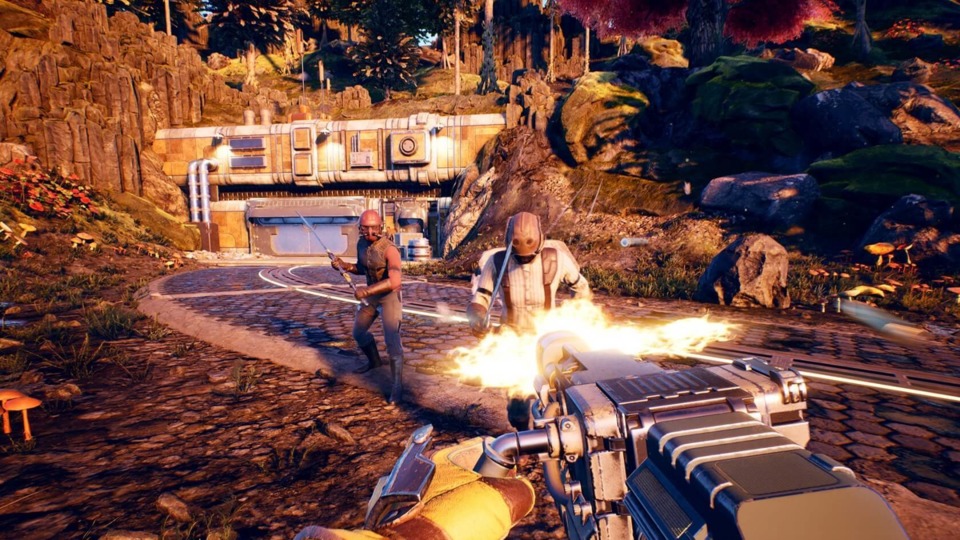
Alternatively: I rushed through The Outer Worlds so utterly completely during a recent work trip that I would feel bad filing for the trip as a business expense. It’s a compelling action RPG, with a quirky world, fun weapons, and just a familiar sense of being a complete and encompassing game where everything kind of works the way you’d expect it to. It’s video game comfort food in the best way.
Best AA: Outer Wilds
Outer Wilds is a game I could talk about for hours, and it would also 100% ruin Outer Wilds to do so. The game is focused, short, and smart--a wonderful exploration of exploration in games. It’s a game about learning through exploration, about progress through exploration, about understanding through exploration. You’re an aspiring alien astronaut that sets off on their first space adventure, and let’s just say that things go extraordinarily poorly.
The game is kind of set up like a roguelike without randomness, cleverly using the mechanical advantages of the genre narratively and aesthetically. As you visit the different planets and locations in the micro-solar system of Outer Wilds, you’ll either die some ridiculous death, or learn things that might help you on subsequent playthroughs--each of them no longer than 20-ish minutes. Every playthrough, the solar system is the same, the events that occur are the same, but you are different for having gone through your last run. Armed with your newfound knowledge, you can attempt to explore the solar system again to find more clues and more bits of story.
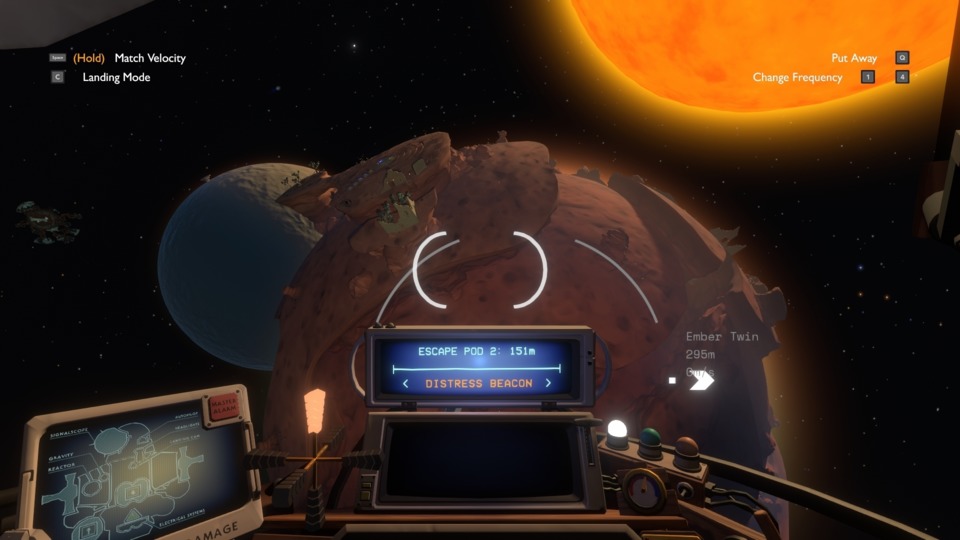
Outer Wilds mixes some things you might recognize from incredible games together, although the game has been in development since the start of the decade and thus likely was developed in tandem or prior to some of the games that you might recognize in it. There’s the loop from Save The Date or Minit, the charming moments of a Sword & Sworcery, the weird internal logic of a Stanley Parable, meaning reaching a true conclusion involves actually beating the game’s structure itself.
But the honest truth is that the ending isn’t what Outer Wilds is about. Outer Wilds is about the places and characters you meet along the way, and the how and when and where you do certain things can affect the way things play out. It’s a game about curiosity, and wondering just how bad of an idea it might be to jump into a black hole. There’s nothing like it anywhere in games, and I find it unimaginable that you might play it and not be touched by it.
Outer Wilds is a game about sitting at a campfire listening to someone playing a banjo, knowing that the end is coming, and it’ll be fiery and painful, but it isn’t quite here yet and you’ve got nowhere else you need to go anyway.
Favorite touch(es): I spent 20 minutes at a campfire, listening to someone playing a banjo, knowing that the end was coming, that it’d be fiery and painful, but it wasn’t quite there yet and I had nowhere else I needed to go anyway.
Least favorite: Outer Wilds is clunky by necessity--trying to do and be so much at once and so well--but it might be a little more clunky than is good for it. I’ve had more than a few friends bounce off of the game because of its rough edges, and it’s heartbreaking to know that they’re not necessarily wrong.
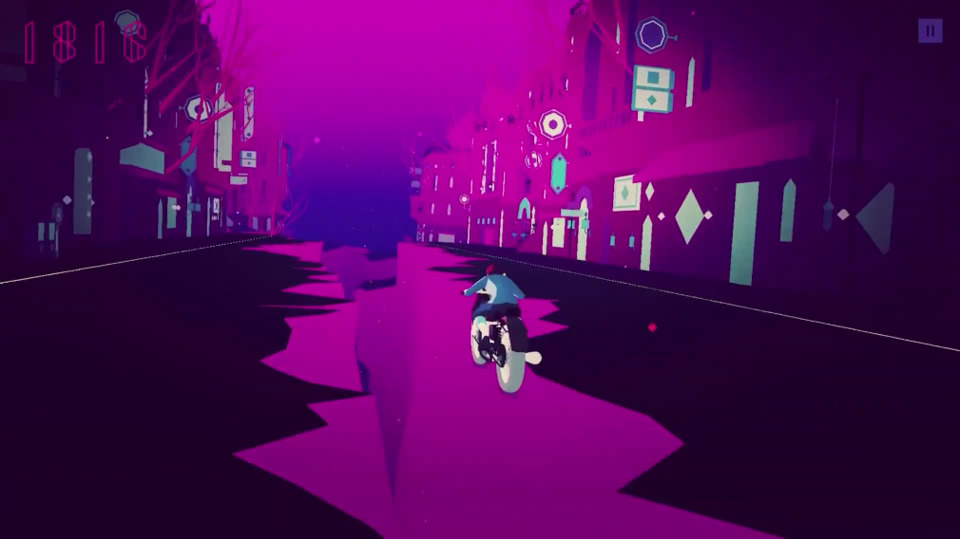
Alternative: That finger snap level in Sayonara Wild Hearts is both infuriating and incredible, and Sayonara Wild Hearts is an incredible pop-y music game that suffers only from being structured in a very traditional fashion. If you haven’t played it yet, find a friend that has unlocked Album Arcade, which allows you to play the game as one long level, and play it on their device. Then pay it forward by buying the game, finishing the levels one by one for high-scores or just to replay them, to unlock Album Arcade mode, and then convince a friend to play it.
Best Atmosphere: Observation
This year was so incredibly full of impossibly atmospheric work that it is hard to pick any single game for the category. But the introduction to Observation alone has more atmosphere than anything--across any medium--I’ve encountered in 2019.
I actually don’t even want to talk about Observation. It’s a clever game, an inversion of ‘can I trust the spaceship AI’ in which you are the AI. The mechanics are fascinating, with most of your interactions being through sci-fi-ish minigames and a clever communication system. The game unfolds meaningfully, the characters are interesting, the central mystery is terrifyingly enticing, and the resolution is entirely serviceable. A lot of it evoked the Asemblance series, games which I love dearly, a mystery wrapped both in and around an evolving understanding of a broken machine and the fallible humans that used it.
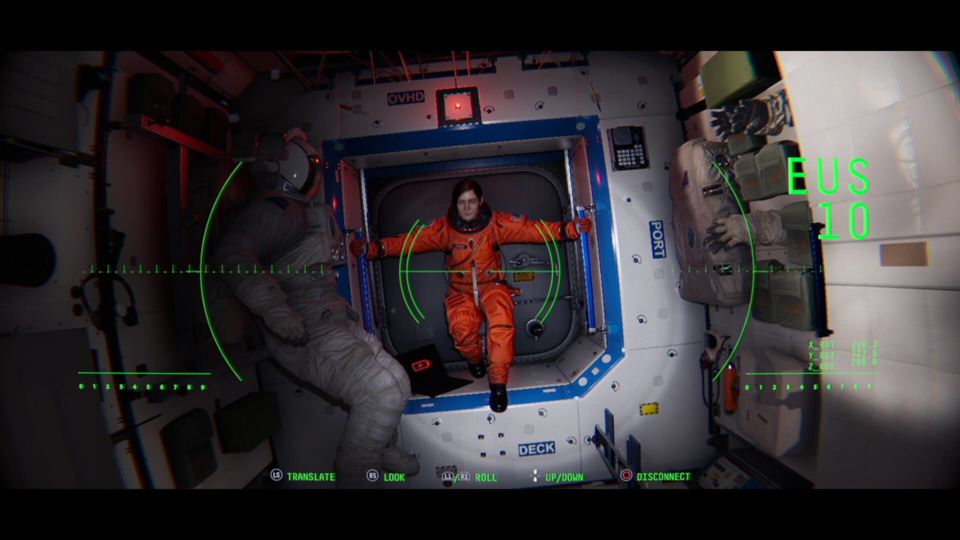
But unlike Asemblance, Observation’s atmosphere is at its absolute best when you don’t understand what’s happening--which means the opening sequence all the way up to the title card is the strongest part of the game. The introduction is so good that I’ve made a ton of developer friends play just that part and grinned at their smiles and quizzed frowns and shocked responses. I’ve played it over and over, only finishing the game once, because I want to understand what worked so well about it. I haven’t obsessed about the opening to a game as much since The Last of Us’ opening sequence.
Sadly, it also means I can’t talk much more about the game without spoiling any of it. Observation is worth playing--fully--but the introduction is on an entirely different level of craft.
Favorite touch(es): I always mistrust the ship AI in sci-fi, and Observation brilliantly plays this against you. The game makes abundantly clear that you’re not the only controlling factor in the AI, and that sometimes you’re just bound to the actions and commands of others. Do you trust them to modify you? Do you trust your own systems and sensors? HAL was just doing its job, you know.
Least favorite: Observation can’t escape being a video-game at times, with some obscenely video-game fetch quests and pixel hunting.
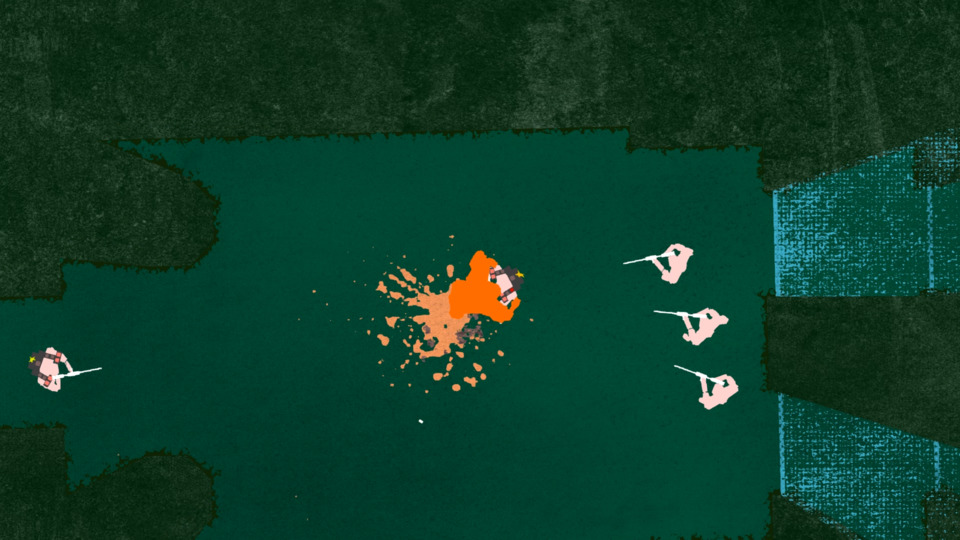
Alternatively: Ape Out is a game about being an angry gorilla smashing things. Doesn’t sound atmospheric, perhaps, but between the sublimely procedurally generated soundtrack and the stark visuals, the game evokes more place and mood than most productions with hundred times the resources will typically achieve.
Best Emergent Territory: Disco Elysium
I really expected to hate Disco Elysium. As a life-long non-drinker, I genuinely can’t relate to ‘drunk person in bar,' absolutely hate the trope, and dislike alcohol (or its equivalents) in video games for its unnecessary ubiquity (still angry at you, Mass Effect). I tend to immediately bounce off of any character that requires me to roleplay anything related to drinking.
With that in mind, it should be clear that it means something when I say this game in which you start by waking up from a days-long drunken coma is flawless. It’s turn-based role-playing if role-playing didn’t immediately evoke orcs and dungeons. It is so rich in options and character choices that it’s a miracle it’s not entirely broken.

You play an amnesiac detective investigating a murder and the premise is entirely boring and forgettable, but it’s used so well to springboard your journey and gosh, what a journey you have. The internal dialogue of your skills and abilities and thoughts steers you through the many options and branches of the game, and I genuinely got a headache trying to mentally reverse engineer the scope and structure of the game. Everything flows so smoothly, and feels so true that even when things went very poorly for me, they still ended up feeling fair and right.
And things go very poorly for me, but the magic in Disco Elysium isn’t so much in where you start or end, but in how you get there. I feel I could play this game a hundred times over and still have new paths to wander, new ways to fail, and new moments of humanity. Disco Elysium made me laugh about shame, gave me strength hurting about lost relationships, and got me to feel conflicted about someone else being happy.
I want to frame Disco Elysium and hang it on a wall.
Favorite touch(es): The way literally everything in Disco Elysium is effectively a skill check makes for some incredible moments, some unexpectedly in your favor, some hilariously to your detriment. Either way, every path seems worthwhile. I also really appreciated the way Disco Elysium handles alcohol and drugs, which--again--for me, is remarkable.
Least favorite: Sometimes the game’s mechanics subtly work against itself, and Disco Elysium has so much loving momentum that even being forced to talk a little more can take you out of the feeling of having control. Luckily, there’s almost always something to do that’s interesting and compelling, and it generally won’t be much of an issue.
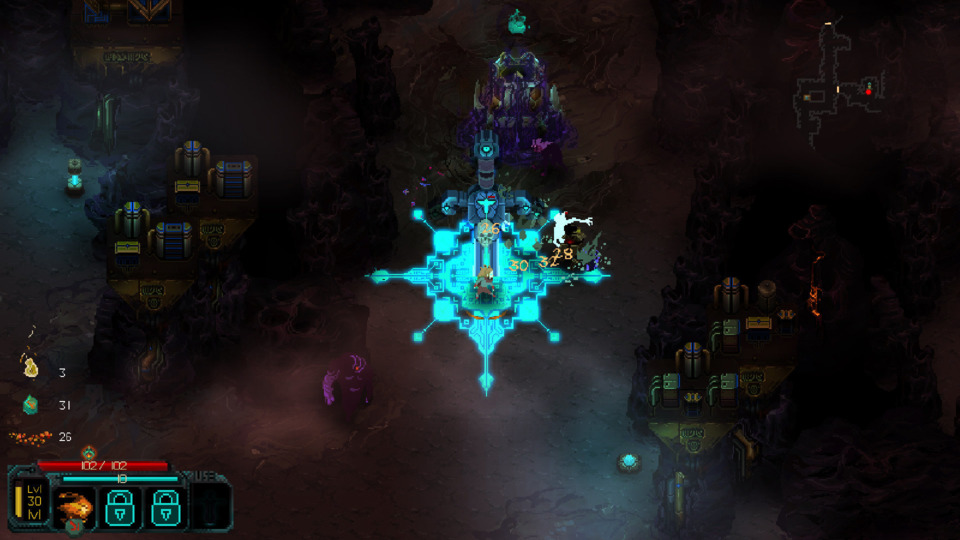
Alternatively: The wonderful Children of Morta is a game close to my heart. It feels familiar to our own Nuclear Throne, a game about a small family in an impossible world traveling via portals to their rather certain doom. Morta uses clever tricks to keep the game fresh, and to force you into trying new strategies and loadouts. It’s absolutely a grind, but it’s a grind that’s remarkably easy to love, and really prepares you for the more difficult boss battles. An oddball style that pulls together beautifully, a strong cast of characters, and a solid dose of dungeon crawling makes for an easy recommendation.
Best Whimsical: Untitled Goose Game
Who would’ve thought being a horrible goose annoying a village of innocent people would be the stand-out power fantasy of the year? “Goose game” hit that odd and unpredictable and infrequent mix of being “what people didn’t know they wanted” and “utterly impossible to not talk about”.
I was mostly fascinated by the odd morality of Goose Game. Games tend to justify any harm you cause your antagonists by making them unlikable or by making them do something unforgivable. The Atrocity That Makes It All OK is an incredibly overplayed trope to justify absurdly disproportionate violence, to soothe our morality. Nothing in a game is more reassuring than the bad guys firing off a nuke towards a city you’ve heard of on TV, because now it’s OK that I’ve been shooting different people in a nondescript sandy town in a fictional country in the Middle East.
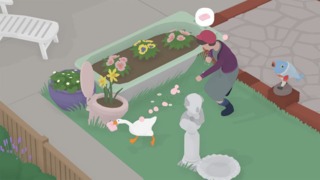
Now, don’t get me wrong, I’ll happily run around game worlds shooting thousands of people in increasingly unlikely fashion because they might do a bad thing, but that doesn’t mean I don’t want to interrogate the why of that. In most games that prominently feature violence, tons of small tricks are used to keep the player firmly on the good team. Most developers know those tricks, and I’m guessing a ton of players have recognized plenty of them by now.
What’s fascinating about Goose Game is that I felt the game kicking in some of those same doors--I was trying to justify my enjoyment of terrifying the crap out of an innocent kid against my moral compass, and Goose Game does absolutely nothing to make you feel better about it. You are the goose. The goose is horrible. The goose does not have a morality. Goose is more ruthless than the guy from Manhunt. Goose has less mercy than Captain Price. Goose does not give a shit. Goose will fuck you and your sandwich up.
What I’m trying to get to is that nothing in any hyperviolent video game--not executions, not fatalities, not slow and tortuous kills, not getting an enemy eaten by a flytrap before burning it down halfway through, not selling a character into eternal pain--nothing has ever made me feel worse than making a kid I’ve terrified to the point of crying in a phone booth trip over his shoelaces just to swap his prescription glasses from another pair I stole from a store in which I also placed his favorite toy so that the shopkeeper won’t let him take it back without paying for it.
Fucking hell, Goose Game.
Best touch(es): Goose Game relies almost entirely on its humor, and humor is incredibly hard to pull off in games. You can tell they went all in on that, hiding jokes in everything from the music, sound, animation, movement, physics, objects, speech bubbles--not a single stone is left unturned for a delightful, funny, or smart wink.
Least favorite: Who the hell throws away a toothbrush in an outdoor garbage bin? What happened there? Why did I have to look up where to find a toothbrush when there’s a store that has every other item I’m looking for.
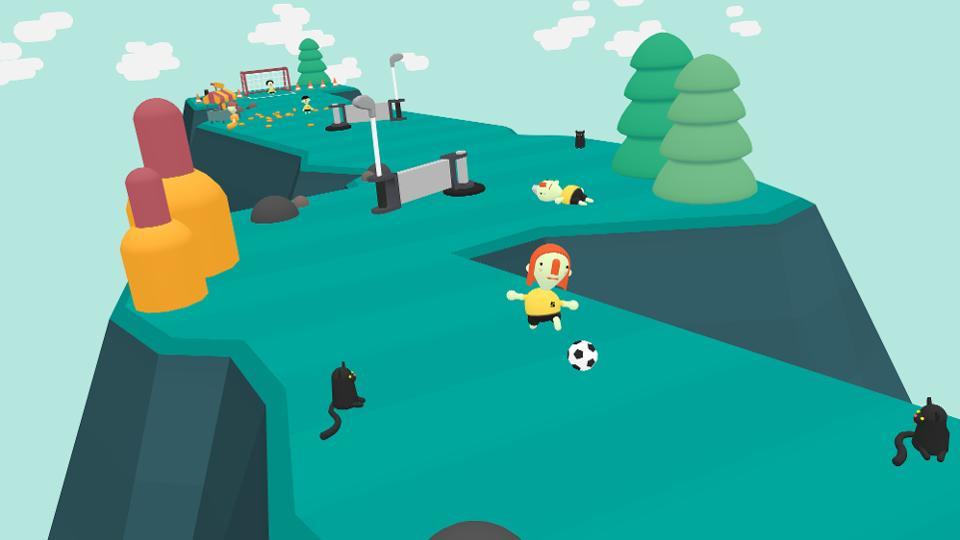
Alternatively: What the Golf? is a delightful golf game in which every level is a joke or a pun. Some of the jokes overstay their welcome just enough that it becomes annoying, but overall the level of creativity and cleverness on display here is staggering. As I played the game, my brain drifted to levels I might design, because surely they can’t have mined the design for every possible option. By the end of the game had I not only seen most of my ideas implemented, I was also fully convinced that if an idea I had wasn’t in the game, it was probably prototyped and discarded for being bad. What The Golf? is a remarkable exploration of getting the most out of a simple idea. Especially try replaying levels on higher “difficulties” for some of the most creative level design and puns in recent games.
Best Multiplayer: Destiny 2 Shadowkeep
Destiny remains my end-of-day destination for every day that my PS4 is around, and Shadowkeep is the best iteration of Destiny since its original launch. Shadowkeep also shouldn’t be mistaken as an expansion pack--it is effectively an entirely new title. The expansion brought a total rework of the economy, the mod and armor system, progression and season structure, a move to free-to-play, an entirely new campaign with clever new enemy types, a complete new-but-familiar rework of the Moon from Destiny, the loot system, and an incredibly fun seasonal artifact to experiment with temporary access to potentially overpowered builds, and months of playful backdrop while catching up with friends.
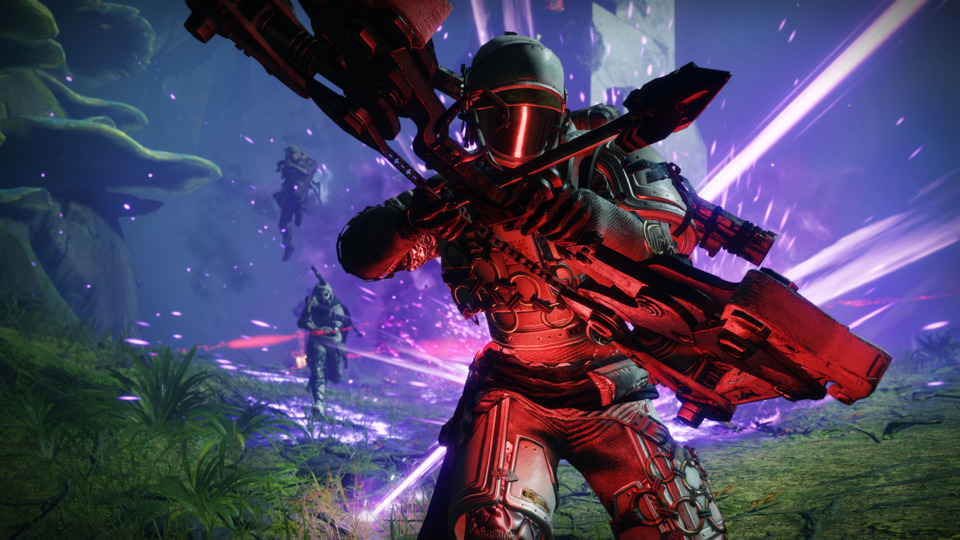
The new campaign decidedly had more momentum than Destiny had before, as a long-anticipated galaxy-wide threat starts to encroach on our worlds. In the most traditional Mass Effect story-telling tropes, the player meets the disabled alien ship early on in the campaign, and then spends the rest of the campaign trying to gain access to it, until they eventually manage to gain access and confront the Darkness together with Eris--a fan-favorite character.
After you beat the campaign, Destiny 2 Shadowkeep keeps evolving the story through weekly narrative moments, to tell the story of the Vex Offensive and the story of the Undying Mind, which makes the story feel like it has continuous momentum, and that we’re standing at the start of great things to happen in the game.
Best touch(es): Destiny 2 seems to know what it is, and what it wants to be. It seems like one of the hardest games you could possibly be working on, and I have to respect Bungie for its unwavering commitment to the game, the development team, and its community. There will always be complaints about the game, but that’s how we know that--despite being declared dead in 2013, 2014, 2015, 2016, 2017, 2018, and 2019--Destiny is one of the most meticulously designed games around. I guess I’ll start worrying about the game when there’s nothing worth complaining about.
Least favorite: I should really stop reading user suggestions of how to fix Destiny 2. The game is such an incredible balancing act--with so many interests, opinions, and player demographics--that it’s remarkable to me that the game finds any balance at all. The shifts back and forth into the different demographics’ demands feel intentional, never losing any groups’ wishes for too long. But gosh, is it exhausting to listen to or read armchair designers’ thoughts on This Is Clearly How The Game Would Immediately Be 500% Better, which come down to ‘This thing I like I should have more of’ and ‘This thing I don’t like I should have less of’--frequently self-contradictory, too.
This isn’t limited to Destiny--this is true in almost every on-going game out there. Let’s drop Destiny from this rant, because this is a rant about game design and feedback in general now.
Game Design is a strange craft--it’s not quite an art, and not quite a science--but it certainly encompasses both. It is not a field of opinion, it’s a field of problem-stating, problem-solving, and testing. It’s not entirely objective in its goals, but there is an objectivity to be applied to the quality of the solutions. It’s not entirely ideas, and not entirely math.
I’ve been that person early on in my career, thinking that game design is the art of having ideas, but over the years of learning from the industry, and watching my Vlambeer co-founder Jan Willem, I’ve come to understand that it is the art of having ideas, eliminating them, testing them, and implementing them. Design is as much the high-level design as the minute and mundane shifting of values by a tenth of a decimal. It’s both thinking about player psychology and messing around in an Excel sheet because two values don’t really align.
Nothing is more daunting to a games’ enthusiast going into game design that realizing how fucking hard it is to design a clone of Pong, or Pac-Man, or Space Invaders, even if you already know exactly what game you’re making and how it works. I’ve seen terror in the eyes of third-year game design students realizing that their opinions on why Call of Duty is the worst designed game of the world when I gave them an assignment to balance three different weapons for one player class. You have never seen the despair of a designer being told that this one thing needs to change, knowing that that change will cascade through every single part of the design, change how players think and play and act, and having to compensate for that.
I can guarantee you that designers are thorough people. They don’t always get everything right, they’re not flawless, and yes, sometimes folks outside of the industry have great ideas too. But the one thing the community or audience can never get wrong is their opinion that something feels good or bad. That feedback is so helpful and so useful and so welcome. Every developer loves hearing what people love and what people hate--despite our best intentions, our best testing, our best efforts, sometimes things just aren’t good. Half the reason I do the Favorite Touch(es), Least Favorite thing is to show that a good game has faults, and that the beauty of many games can be found in the details.
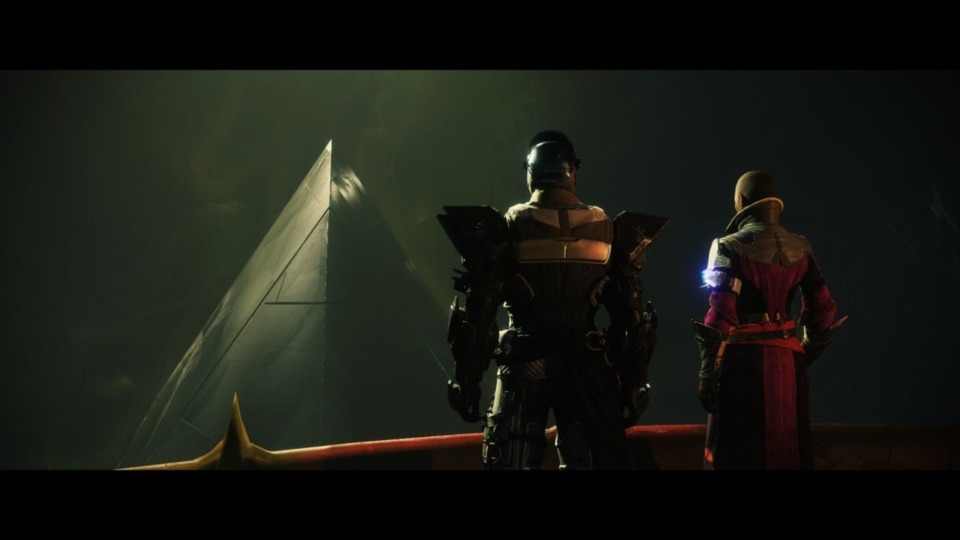
I sometimes wish we could just agree that telling developers what feels wrong to us is way more effective than pretending developers are all incompetent assholes and you, person who plays the game, is both representative of the entire community and somehow better at a craft we spent a decade improving. If I could have one single wish for something absolutely silly, it’d be to be able to telepathically yell at every person that says us, the community, and we when they propose a terrible or poorly thought out game design idea as the pinnacle of intelligence.
Don’t get me wrong, there’s plenty of great writing and video content about games. There’s plenty of terrible writing and video content about games. We should be thankful that anyone cares enough to give enough of a damn to even start making this content--because good or bad, it’s all proof of engagement, and it’s all proof of care--even when the care is absolutely abusive at times. As developers, all we want for people is to care enough to make videos or writings or fanfic or articles or cosplay or fan music or whatever. We really just want you to care, and it’s so cool when you do. It’s so cool to see what parts of our grand plans worked, what parts didn’t, what connects, what doesn’t, what last-minute duct-tape solution seems brilliant in hindsight, and what carefully and systematically established pillars of our design are absolute bollocks. When we say we do this for you, we’re exaggerating a little--most game developers make games because they want to make games. We do it for ourselves, but you as players are the payoff. You’re the point of the game, that moment of interaction, that spark of understanding, that smile or grin or grimace or yell. Any game developer will tell you that nothing is more rewarding than that moment of seeing someone care.
But here I am, going through some other post or article or watching some YouTuber tell one of the most capable and incredible development teams in the world that they KILLED the game. MURDERED it. EVERYONE in the community understands this, so how could they not understand that this is NOT what THE GAME is. We all know that if only they had JUST done THIS OBVIOUS THING that ALL OF US have been saying for months those INCOMPETENT GREEDY LAZY FU--
I should watch more wholesome lore videos.
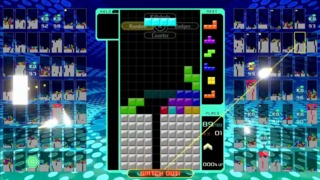
Alternatively: Tetris 99 is a Battle Royale Tetris game, and it turns out that’s… remarkably fun to play. It feels a bit hacky if you’re in the same room--trying to sync which game you end up, trying to see if the player count hits the same steps--but for some reason it is remarkably fun to just sit in a room with some friends, yelling about your progress in a shared space, barely affecting each other.
Best B-Game: Ace Combat 7: Skies Unknown
“Yet, what is a nation?” is my favorite phrase of video game writing in 2019. It is uttered by a man who, we are told in all earnestness a few moments earlier, is named Mihaly Dumitru Margareta Corneliu Leopold Blanca Karol Aeon Ignatius Raphael Maria Niketas A. Shilage. Mihaly is a fighter pilot, which in the world of Ace Combat means he is one of the few elite people on Earth who can fly airplanes, think philosophically, and actually affect history. Ace pilots are the way the world works, and nothing else matters. They’re the heroes, the political ace-in-the-hole, the military might, and the great thinkers.
Ace Combat 7: Skies Unknown has riveting dogfighting combat, gorgeous graphics, and stunning clouds. It combines an incredible sense of action with minutes-long mission briefings and debriefings full of technical-looking sci-fi interfaces. The airplane flies smooth, the music is brilliantly sweeping, and the scenarios are mostly fun and range from plausibly challenging military airfield assaults to arcade nonsensical tunnel runs.

Skies Unknown is the first Ace Combat game I ever played. I have since played almost every Ace Combat game. I played the others because Skies Unknown continues the series’ story of the Strangereal, a fictional version of Earth in which land masses and history are entirely different (although it is remarkably easy to figure out which Strangereal country represents what real-world country). In the Strangereal universe, plenty of wars have fractured the peace, and it seems that each of them was decided by ace fighter pilots that reached mythological status--these legends are aplenty, and when the world steers towards war, they correct the course.
In Ace Combat 7, your pilot is one of those ace fighter pilots and accidentally blows up the president. That doesn’t go over well, so he gets demoted into what is effectively a suicide squad as punishment, and then works their way back up to proving his innocence (it was the AI all along), saving a princess, and protecting a space elevator from an airfield-sized super-airplane called Arsenal Bird. The story is told in the most over-the-top melodramatic way you could possibly imagine, set to pseudo-philosophy dialogue about right and wrong, fair and unfair, truth and false.
I’ve always been a fan of airplanes, what with MiG-29 Fulcrum being one of my first games ever, but never had I thought that what I truly wanted is a streamlined mix of the aesthetic of Metal Gear Solid, the political absurdism of Final Fantasy, the melodrama of Kingdom Hearts, and listening to two philosopher-ace-pilots thoughtfully discussing the color blue over a beautifully epic soundtrack as I pull a high-G water-skidding corkscrew to dodge a missile.
Best Touch(es): What absolutely makes Ace Combat 7 is that despite it being absolutely, positively, undeniably 100% campy melodrama, the game plays everything 100% straight. At no point are you winked at, or does the game acknowledge that having a radio conversation about legacy with a legendary ancient hostile fighter pilot during a battle to the death is absolutely absurd. It just is, and that is the reality for the Strangereal, and that should be good enough for the player.
Least Favorite: Ace Combat can be very opaque in its missing progression system, which means that in several missions you’ll end up dying for objectives you hadn’t even seen. If you ever hit a mission in which you have to destroy trucks or SAMs hidden under some weather effect before time runs out, do yourself a favor: just Google it. I found them the “proper” way and I almost quit Ace Combat forever right there.
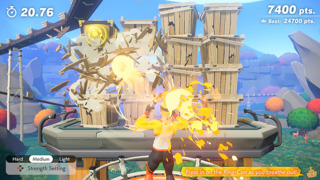
Alternatively: I almost feel bad calling Ring Fit Adventure a ‘B-game’, as it is an extremely polished yet corny excuse for a fitness game. A whimsical RPG in which you traverse levels to fight enemies a la Pokémon by using one of a number of available attacks sounds pretty cool. Now replace every noun in the previous sentence with “fitness exercise(s)” and you’ve got a good idea of just how harsh of a bait-and-switch Ring Fit Adventure is.
The Ring-Con looks like a delightful accessory until you realize it is pain incarnate, and the Joy-Con you strap to your leg is just a way to make sure you don’t take it too easy on the exercises. Ring Fit Adventure goes HARD, and I am not too proud to admit that 2019 left me out of shape enough that ‘I can do one more level’ was a mistake that had me dropping to the floor to catch my breath at the end of the exercise. It is unmistakably effective, and while this isn’t some cheat code to being fit, I can definitely tell there’s a difference after a week or two of play.
I’ve heard people say Soulslike games have bosses that bring the pain, but they don’t know what pain is. Just you wait until you fight this purple dragon dude in Ring Fit Adventure. Then come talk to me about pain.
Best Indie: Baba Is You
Baba Is You is an indie game. It’s a terrible idea--a game in which players affect the rules by shifting around blocks. If you hear that as developer, your first thought would probably be hah, that’s a terrible idea, there’s no way to make that. Except for someone did make it--Finnish developer Arvi “ Hempuli” Teikari did--with what must have been a reckless disregard for literally anything besides the game.
For folks that have followed indie games since way back when, Hempuli isn’t a new name to the indie scene, with small experimental works like Floating Island Game and Masjin and Excavatorrr all the way back from 2010-ish, and eventually the lovely metroidvania Environmental Station Alpha. Baba Is You pays homage to the experimental nature and style of Hempuli’s earlier work, but is clearly made with the experience of over a decade of game development.
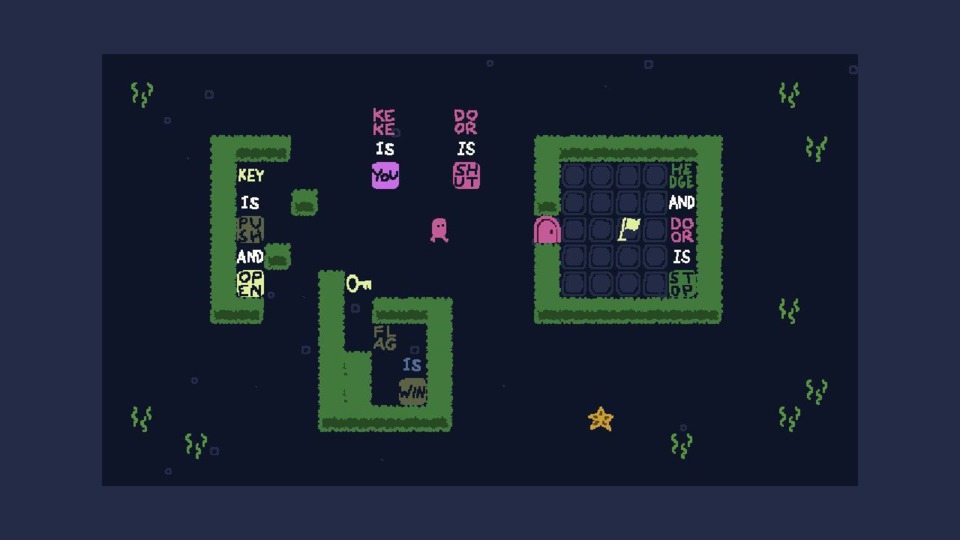
In Baba Is You, players navigate Baba, moving around blocks in a Sokoban-styled game, the main difference being that some of the blocks are words. Those words, in turn, can create sentences--Baba Is You, Rock Is Push, Lava Is Hot, Flag is Win. Those sentences are the rules of the game. In the example before, you control Baba, you’re trying to get to the Flag, you can push Rocks, and Lava will kill anything that can’t deal with heat that touches it. With some maneuvering, you could push Rock in place of Baba, making Rock Is You, and now you control every single rock in the level. Or you could make Lava Is Win, and Win by pushing Rock (you) into the Lava.
As long as there’s a You, you can continue playing, and as soon as nothing is You (or the last You is destroyed), you have to rewind. The game offers infinite rewind, which will be more than necessary at solving some of the more deviously clever misdirection and galaxy-mind level solutions in the game.
Baba Is You is a game about game design, a remarkably self-reflective game not unlike The Stanley Parable. This sort of self-reflective and self-interrogating work often makes for some of the most fascinating work, and Baba Is You is an impossibly remarkable achievement.
Best Touch(es): The onboarding for Baba Is You must’ve taken a very long time to get right: the game is for a specific type of puzzle game fan, but even for experienced puzzle game fanatics this game is mindboggling. The slow build-up of difficulty never feels tedious, nor impossible, and you continuously feel like you’re one step away from solving a puzzle. The moment that brought the game home for me was the first time I accidentally pressed ‘You’ away from any sentence, and it dawned on me that that was an illegal move. I gasped, giggled, and went back to work. I can’t be more than one step away from figuring out the solution, after all.
Least favorite: Baba Is You is largely fascinating because of the freedom of solutions it offers. Like the best of Zachtronics’ work, it feels like the possibility space is endless. Do you solve this level through turning the victory condition into something trivial? Do you stop the walls from having collision? Are there other, creative, odd solutions? Sometimes, solving a level your way feels like it couldn’t have been the creators’ intent, and those solutions feel smartest.
As the game progresses, the possibility spaces feels tighter. More rules are in impossible to reach spaces, becoming unmodifiable, and more is dependent on perfect execution of a sequence of solutions. This is probably an unavoidable result of the radical design, but if I had one nitpick, this would be it.
Alternatively: Kind Words (lo fi chill beats to write to)
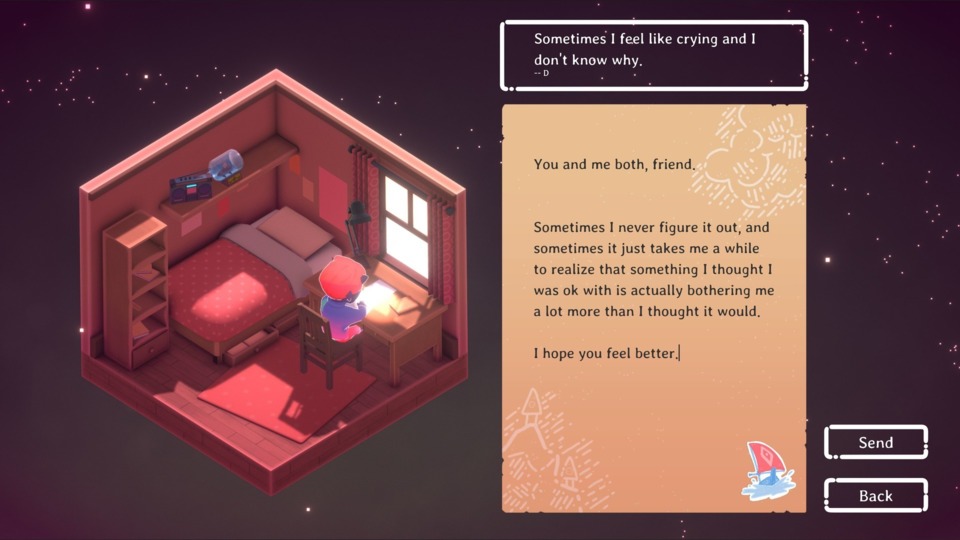
If one of the goals and potentials of independent games is to explore spaces that are subversive or different than what is there in our medium already, Kind Words is potentially the most subversive game of… the decade? It’s a game about writing a kind letter, and asking for kindness. It’s lovely, lo-fi, and chill.
Best Mobile: Grindstone
In Grindstone, you play Jorj, a hyper-violent and over-aggressive Viking-esque character trying to climb a mountain. Your goal is to terrify and then kill an endless wave of monstrous enemies, dissecting them, slashing them open with your sword, or beating them to a bloody pulp as they plead in horror until they explode in gore and guts from one punch too many. Your goal is to collect their valuables, organs, and bones after they have fallen to fund your further ascent up the mountain.
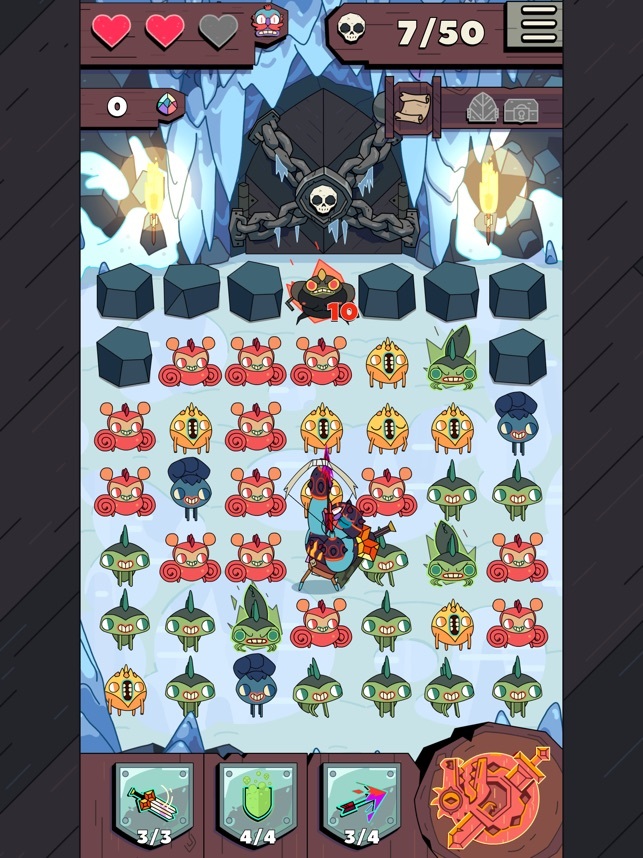
Grindstone is also a really good and adorable color-matching puzzle game for Apple Arcade.
You try to trace an eight-directional path through as many enemies of the same color to have a Grindstone spawn somewhere randomly on the grid, and collecting a grindstone during your future chains allows you to hop to another color mid-spree. Land next to an angry monster--which increase in frequency and amount as time goes on--and Jorj takes damage, and three hits will send you back to the level select. Certain obstacles and opportunities require you to have a streak built up before you can slice through them, requiring clever movement and positioning to clear them.
As the game goes, it introduces more mechanics, more things to collect, more ways to expand your chain, and most importantly, more objectives. That’s where Grindstone goes from good to incredible: the game gives you plenty of things to strive for. Stay long enough for a chest to appear, kill optional enemies for bonuses, or fulfill ones of many challenges for additional skills and materials. Secrets and bonuses feel like they’re hiding behind the next turn.
Before you know it, the slow increase of dangerous enemies has turned the board into a mess, and your greedy hunger has put Jorj in existential jeopardy. As you limp your way to the door, hearts depleted but full of loot, you see an opportunity to grab one more shiny Grindstone from earlier this run. There should be a safe detour to the door, if only that one enemy doesn’t turn angry next turn. If only. I mean, what are the odds, right? I mean, what’s the worst that could happen?
Best Touch(es): There’s this escalating sound effect that plays as Jorj cuts through his enemies, and it never ceases to make me smile.
Least Favorite: I genuinely wouldn’t know. Grindstone is one of those games that you’re either going to love or not be interested in at all, and if you love it, I feel like there’s nothing substantial to not love.
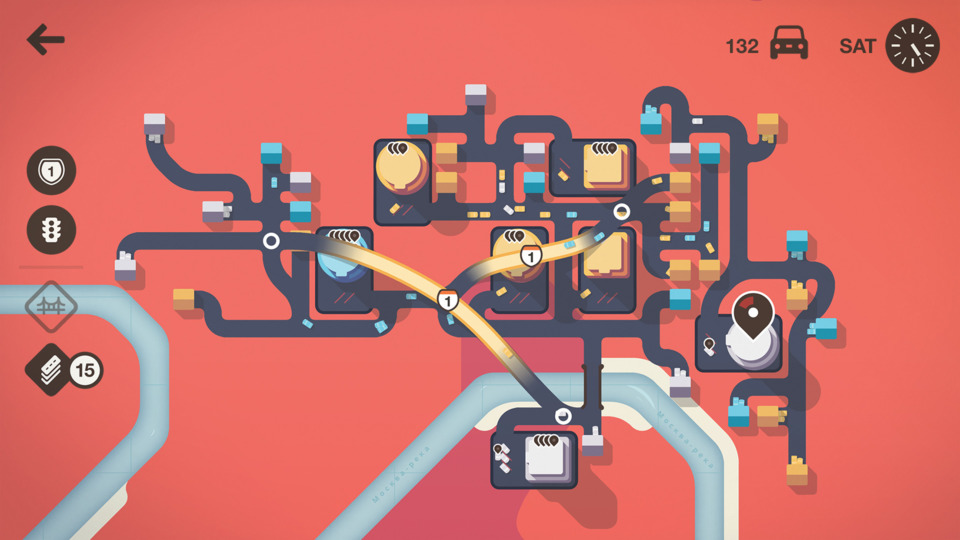
Alternatively: Mini Motorways is a sequel to the sublime Mini Metro. Motorways is every bit as relaxing and stressful as Metro, but feels like an entirely different game. You’ll absolutely go through all five stages of grief as you build a beautiful road that connects two far-away segments of your burgeoning city just to have a factory spawn exactly the wrong way around.
Best …: Dicey Dungeons
2019 was a weird year for games, wasn’t it? It doesn’t feel like it wasn’t quite the overwhelming deluge of incredible games that the past few years were, almost like a deep breath before the storm that’ll unleash upon our medium in 2020--but at the same time, it’s hard to argue that this year wasn’t overwhelmingly full of incredible games. There was so incredibly much to play, on so many different platforms, in so many different ways, that it is odd for me to feel like it was a calm year.
There were some remarkable moments as well: Flappy Fighter was an incredibly competent mobile fighter that somehow pulled together the competitive fighting scene and mobile phones. Wilmot’s Warehouse somehow made tons of people play work. A Short Hike is a charming game about a short hike that you will regret playing because you’ll never be able to play it for the first time again. Katana Zero reached and almost touched that Hotline Miami level for best-soundtrack-set-to-hyperviolence, but getting close is an absurd achievement. And there was the vague horror of No Players Online, which swept up a small community into a terrifying ARG for a week-and-a-bit.
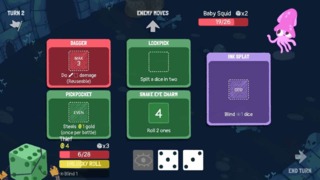
I struggled with AAA games a bit more this year. Sekiro was incredible, but never quite stood out to me as the best version of Sekiro it could be. Fire Emblem: Three Houses should’ve really punched me in the face with its timeskip, but by the point that happened I had grown tired of the game--the first time that has happened to me in a Fire Emblem--and while I enjoyed the game front to back, I sure felt a little like a spark was missing. There were plenty of “Just Very Good” AAA games this year, tho--whether it was A Plague Tale: Innocence, Super Smash Bros. Ultimate, or the beautiful sequences calling the van in Devil May Cry 5, there was plenty to love.
I tinkered around Dreams and Super Mario Maker 2 and loved every minute of both making and playing. Then there was Star Wars Jedi: Fallen Order, which should win an award for Best Game With The Worst Map of 2019, creating an incredibly satisfying Soulslite (sorry) held back only by its insistence on backtracking and stubborn lack of signposting.
Metro Exodus made me feel at home in a train, while Pokémon Sword and Gears 5 and Call of Duty: Modern Warfare made me feel at home in games I loved long ago, but had fallen out of love with a bit. And there was plenty of incredible indie work, with the subtle storytelling work in Telling Lies or Erica, the clever puzzles in Kine, the smartly silly space-roguelike Void Bastards, the gorgeous Eastshade, and the blink-and-you’re-dead Jumpgrid, or the exceptionally straightforward platformer-shooting action of Hell Is Other Demons.
P1 Select and Card of Darkness sit closely together on the ‘these games will ruin my life’ scale of mobile genius, both somewhat rough but incredibly clever design. Noita managed to do the same on PC, mixing dungeon crawler with pixel-level physics simulation to create something utterly perplexing and unique.
If I had to pick one game for the wildcard this year, it’d be Dicey Dungeons. Dicey Dungeons is probably not the best game of the year, but it is the game that I've adored playing every single time I've booted it up. It is deceptively deep, and while it starts super light-hearted, it immediately draws you in with an incredibly deep metagame. The game concept is clever enough--you bring some action cards that are activated with dice, you roll the dice, and then you spread the dice across your cards. Some cards will only take specific rolls, some cards will allow you multiple uses per turn, some cards have strange and weird results. It might sound boring, but after a short while you will have gone from ‘I guess I’ll try this’ to deck-building, strategizing, and managing your bets.
Combine the clever gameplay that makes you feel clever too with an adorable presentation and music, and it’s easy to see why anyone would end up playing obscene amounts of Dicey Dungeons.
Best Touch(es): I have a weak spot for dice in games (bless 2019 for Sophie’s Dice) as they expose a more intuitive way of thinking about probability. It’s somehow extraordinarily hard to make people intuit that a 10% chance does not in any way mean that 10 attempts will grant you what you want, but it’s somehow entirely intuitive that rolling a six has no effect on future dice rolls. Building a game around probability explicitly using dice is a brilliant little touch, and doing it with this much confidence makes for a remarkable game.
Least Favorite: I strongly believe that your enjoyment of a game is partially tied to its context, and Dicey Dungeons is lovely on PC, but clearly not by any means in its best context on PC. This game will shine on Switch and Mobile, and since both are announced for 2020, and I will buy it again on every single one of those platforms.
Alternative: I desperately played Death Stranding as much as I could before wrapping up on this list, and it just wouldn’t click. I walked around the fields, first too recklessly, then too carefully. I snuck around terrified when the rainbow appeared. I grinned as music broke through the clouds. I was intrigued by the world. I was bored by the utter tedium of the game.
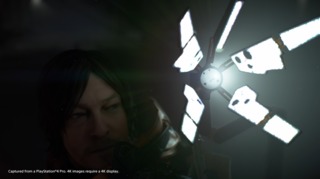
The odd thing was that I could see the many ways this game could be good. There were all these ideas littered around the design space, all these mechanics this close to touching, clasping hands into something whole. But everything just stayed a little too disconnected for the game to work as a whole.
And then, just a few days before I had to send this in, it clicked. It clicked right around the end of chapter 2. Maybe it was the sudden boost in agency that came from the ability to fight back against BT’s, the motorbike, the sudden opening of the possibility space that allowed me to take my route. Maybe it was seeing the world littered with artifacts of other players in the weird asynchronous world of the game. Maybe I just had to get used to the boredom. I haven’t quite figured out what ended up being the glue that brought all those disparate ideas together, nor what the moment was when I flipped from ‘what the hell’ to ‘what the hell but positive’, but as soon as I figure it out you can rest assured I’ll yell about it on Twitter.
I played a bunch more since, delivering mail, piecing together information about the world, and figuring out better ways to traverse the lands. I can’t tell you whether I’ll love Death Stranding or not--it’s way too early in the game for that--but I can tell you that I've never played anything quite like it before, for better or for worse.